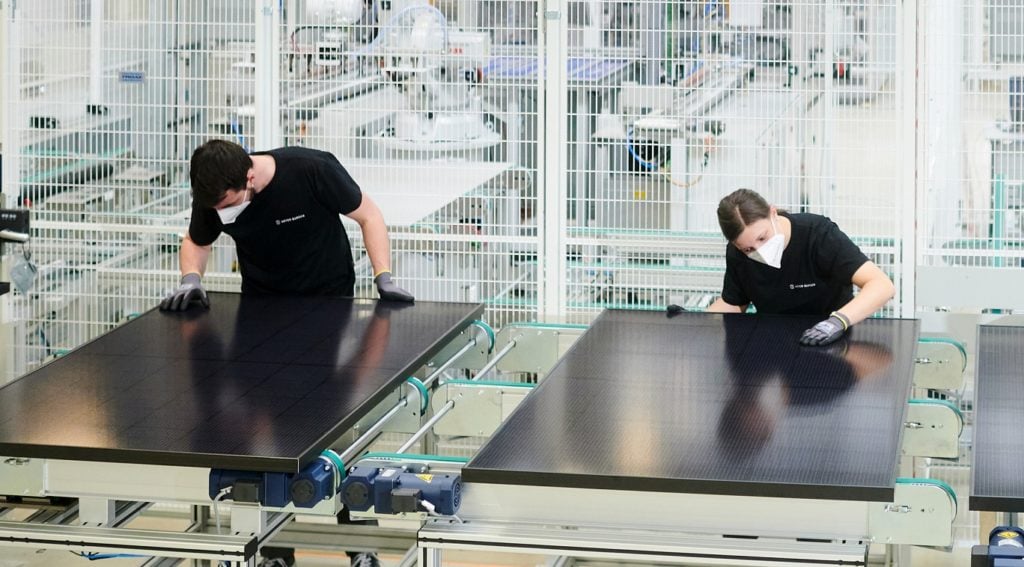
Swiss PV module manufacturer Meyer Burger has slashed its production plans for 2022 and 2023, citing a “challenging supply chain environment” which has caused delays to its planned production capacity build out.
Announced today (2 July), the manufacturer now expects a production volume of 320–370MW in 2022, down from a previously predicted 500MW, while its forecast for 2023 has also been cut to 1-1.2GW, down from an anticipated 1.35GW.
Try Premium for just $1
- Full premium access for the first month at only $1
- Converts to an annual rate after 30 days unless cancelled
- Cancel anytime during the trial period
Premium Benefits
- Expert industry analysis and interviews
- Digital access to PV Tech Power journal
- Exclusive event discounts
Or get the full Premium subscription right away
Or continue reading this article for free
In the first half of this year, Meyer Burger produced 108MW of modules, with an additional 210–260MW expected in the H2. Meanwhile, its site in Freiburg, Germany will start its production expansion to 1.4GW in September and is expecting a production volume of 1.0–1.2GW in 2023 as a result, down from a previous target of 1.35GW.
The first phase of the Freiburg expansion of 400MW was “technically complete”, the company said.
Meyer Burger is putting the downgraded production forecasts down to “the expectation of lower throughput compared to the nominal capacity of the currently operating line as well as a delayed ramp-up of the production capacities currently under construction and commissioning.”
This, it said, reflects “the ongoing global supply chain constraints, resulting in the delayed arrival of required components needed for the ramp-up of the additional capacities”.
The company said it had been able to pass on increased material costs to its customers through sales price increases. But these higher prices had not dampened demand. It said it was receiving strong demand for its products in Europe and the US, where order allocations for Q2 2023 are currently being made.
Meyer Burger is simultaneously expanding its module production in the US with preparatory work initiated during the first quarter of this year, in order to reach an annual capacity of 1.5GW in its plant in Goodyear, Arizona.
It said it expected an EBITDA breakeven result on a run-rate basis to be met by the end of the year.






